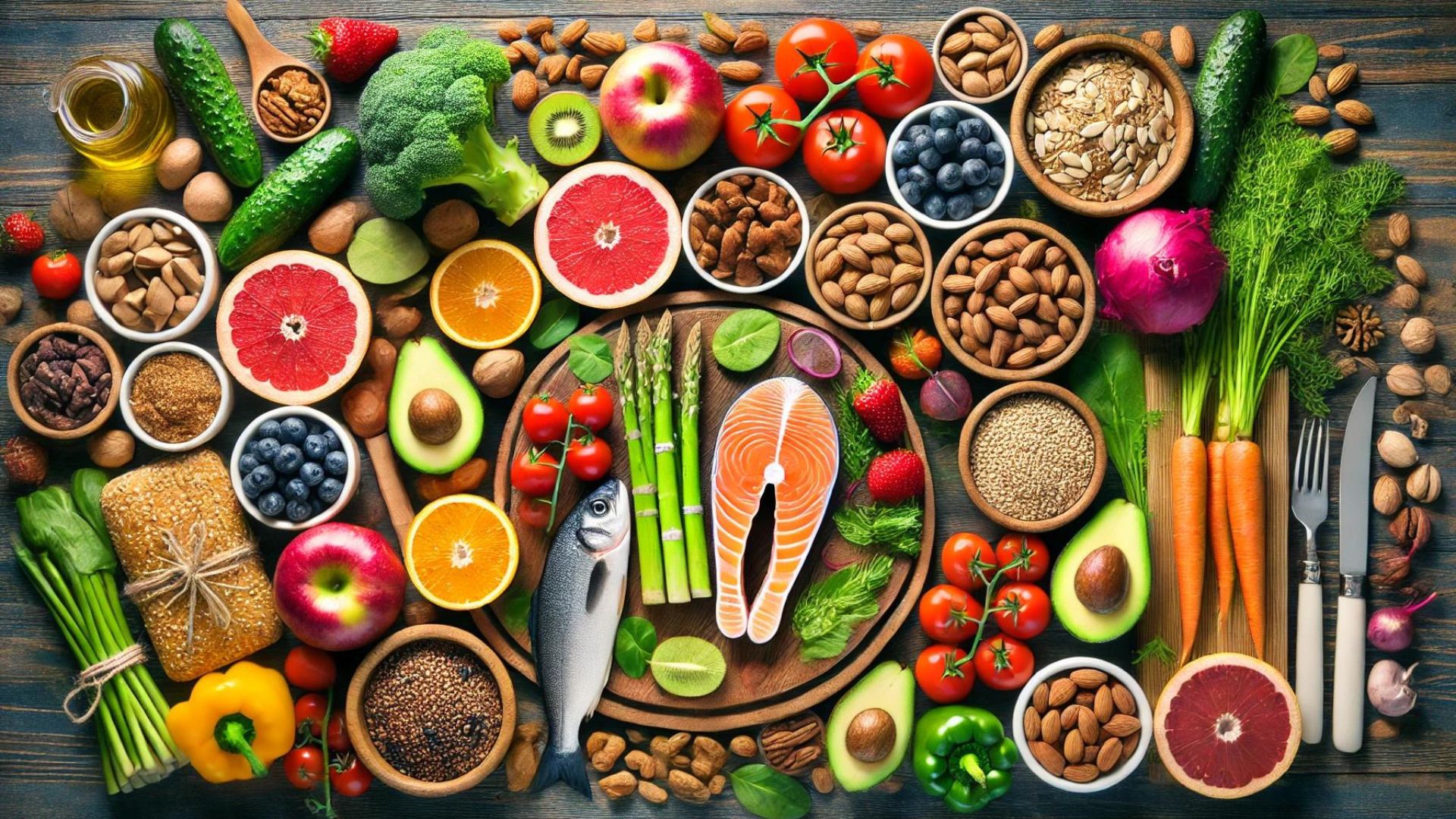How Balanced Nutrition Improves Mental Focus
Natalie Brooks August 4, 2025
In today’s fast-paced world, mental clarity and focus are more important than ever. Whether you’re studying for exams, working on a big project, or managing daily tasks, maintaining mental sharpness can make all the difference. While most people rely on coffee or energy drinks for a quick boost, the key to lasting mental focus might lie in something much more fundamental: balanced nutrition. What we eat has a profound impact on how our brain functions, and understanding the connection between food and cognitive performance can unlock new levels of productivity and well-being.

The Link Between Nutrition and Mental Focus
Our brain requires a constant supply of nutrients to function properly. The foods we consume provide essential fuel and building blocks for brain cells, hormones, and neurotransmitters, which directly affect our mood, memory, and ability to concentrate. Research has shown that a well-balanced diet can improve cognitive function, enhance memory, and increase mental clarity, while poor nutrition can impair focus, increase mental fatigue, and even contribute to mood disorders like anxiety and depression.
When the body is deficient in certain nutrients, it can affect the brain’s ability to transmit signals effectively, leading to sluggish thinking and difficulty staying focused. On the other hand, consuming the right foods can help maintain brain health and keep cognitive functions firing on all cylinders. So, let’s dive into the most crucial nutrients for maintaining mental focus and how you can incorporate them into your daily meals.
Key Nutrients for Optimal Brain Function
1. Omega-3 Fatty Acids: The Brain’s Essential Fat
Omega-3 fatty acids are essential for brain function, maintaining the integrity of brain cell membranes. Research shows that omega-3s, particularly EPA and DHA, improve cognitive functions like attention, memory, and problem-solving. Rich sources include fatty fish (salmon, mackerel, sardines), walnuts, flaxseeds, and chia seeds. For vegetarians, algae-based supplements are a great alternative. Omega-3 supplementation can enhance cognitive performance, especially in those with cognitive decline.
2. B Vitamins: Energy for the Brain
B vitamins, especially B6, B12, and folate, are crucial for brain health. They produce neurotransmitters like serotonin and dopamine, which regulate mood, energy, and focus. A deficiency can cause mental fog and fatigue. Good sources include leafy greens (spinach, kale), whole grains, eggs, dairy, and lean meats. These will keep your brain energized and focused throughout the day.
3. Antioxidants: Protecting Your Brain from Damage
Antioxidants, such as vitamins C and E, protect the brain from oxidative stress caused by free radicals, which damage brain cells. Chronic oxidative stress is linked to Alzheimer’s and Parkinson’s. Brightly colored fruits and vegetables like blueberries, strawberries, oranges, bell peppers, and kale are rich in antioxidants. A diet rich in these can improve brain function and delay cognitive decline.
4. Protein: Building Blocks for Neurotransmitters
Proteins, made of amino acids, are vital for neurotransmitter production in the brain. These neurotransmitters regulate mood, focus, and mental clarity. Sources like lean meats, fish, eggs, legumes, and nuts help optimize brain function and maintain sharpness.
5. Complex Carbohydrates: Fueling Your Brain for Long-Term Focus
Carbohydrates provide energy for the brain. Unlike simple carbs, which cause blood sugar spikes and crashes, complex carbs (quinoa, oats, sweet potatoes) offer steady glucose release, maintaining focus and preventing mental fog.
The Impact of Hydration on Mental Performance
While the importance of food is often discussed, hydration is just as crucial for cognitive performance. Dehydration can lead to a decrease in brain function, causing difficulty with focus, memory, and even mood regulation. Studies have shown that even mild dehydration can negatively impact cognitive tasks like concentration, short-term memory, and reaction time.
To stay hydrated, drink plenty of water throughout the day and consider incorporating hydrating foods like cucumbers, celery, and watermelon into your diet. Herbal teas and water-rich fruits are also great options for staying hydrated while providing additional nutrients for brain health.
Meal Timing: The Role of Regular Eating in Mental Focus
In addition to choosing the right foods, the timing of your meals can also affect your mental clarity and focus. Skipping meals or going for long periods without eating can lead to dips in blood sugar, causing fatigue, irritability, and a lack of focus. Conversely, eating small, balanced meals throughout the day ensures that your brain consistently receives the nutrients it needs.
Aim to eat every 3-4 hours, and focus on balanced meals that include protein, healthy fats, complex carbohydrates, and plenty of fruits and vegetables. This approach can help sustain mental energy and keep you feeling sharp throughout the day.
Practical Tips for Improving Mental Focus Through Nutrition
- Start Your Day with a Balanced Breakfast: Incorporate protein (eggs, yogurt, or nuts), healthy fats (avocado, olive oil), and complex carbs (whole grains, fruit) into your breakfast to provide sustained energy and mental clarity.
- Snack Wisely: Choose brain-boosting snacks like nuts, seeds, or fruits to maintain focus between meals.
- Stay Hydrated: Drink water regularly throughout the day, and opt for water-rich foods like cucumbers and melons to stay hydrated.
- Avoid Processed Foods: Limit your intake of sugary and highly processed foods, which can cause blood sugar fluctuations that impair cognitive function.
Conclusion
Balanced nutrition plays a vital role in improving mental focus and supporting overall brain health. By incorporating omega-3s, B vitamins, antioxidants, protein, and complex carbohydrates into your diet, you can significantly enhance cognitive function, concentration, and mental clarity. Maintaining a well-balanced diet not only improves focus but also supports long-term cognitive health, boosting memory, mood, and productivity. Prioritize your brain health by making mindful dietary choices today for a sharper, more focused tomorrow, ultimately helping you achieve greater success, better decision-making, enhanced overall well-being, and improved quality of life every day.
References:
- Green, P. and Roberts, S. (2019) The Role of Omega-3 Fatty Acids in Cognitive Function. Available at: https://www.neurosciencejournal.com (Accessed: 5 August 2025).
- McClellan, M. and Johnson, T. (2020) Antioxidant-rich Diets and Their Impact on Cognitive Health. Available at: https://www.journals.elsevier.com (Accessed: 5 August 2025).
- Jackson, L. (2021) B Vitamins and Their Connection to Brain Function. Available at: https://www.healthandbrainmagazine.com (Accessed: 5 August 2025).







